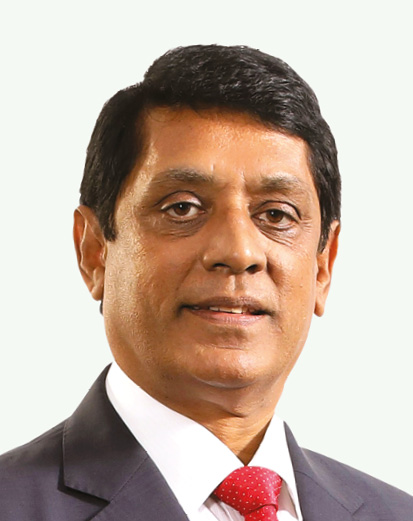ECONOMIC UPLIFTMENT
Serving Society’s Needs
Lakshman Abeysekera discusses the importance of sustainable and alternative financing for SMEs

Former IMF Managing Director Christine Lagarde rightly said: “We need a financial system that serves society.” This is a perceptive statement that holds especially true in the Sri Lankan context.
After all, SMEs comprise 90 percent of registered businesses, employ 40 percent of the population and claim a GDP contribution of 52 percent.
The Chairman of SDB bank Lakshman Abeysekera has good news to share on this front: “Since Sri Lanka signed an agreement on the Sustainable Development Goals (SDGs) in 2015, the Central Bank of Sri Lanka initiated the Roadmap for Sustainable Finance while simultaneously developing governance frameworks in banks to enable SMEs.”
“To achieve these socioeconomic and environmental goals, long-term investment is needed,” he adds.
Mostly, state run development banks play the role providing long-term capital to support growth and economic transformation among many sectors including SMEs.
“However, I believe the public-private partnership model in a development bank might be more sustainable and provide a more diverse funding mix to help the country pursue its socioeconomic goals by supporting SMEs,” Abeysekera asserts.
 Development support is growing. Abeysekera has been appointed Chairman of the SME taskforce established by the Institute of Chartered Accountants of Sri Lanka (CA Sri Lanka) to develop the sector’s business acumen and financial literacy, while helping it establish governance frameworks in partnership with the banking community, state and private sector institutions, universities and chambers of commerce.
Development support is growing. Abeysekera has been appointed Chairman of the SME taskforce established by the Institute of Chartered Accountants of Sri Lanka (CA Sri Lanka) to develop the sector’s business acumen and financial literacy, while helping it establish governance frameworks in partnership with the banking community, state and private sector institutions, universities and chambers of commerce.
He also sees multiple benefits of maintaining a national database of SMEs.
Abeysekera remarks: “SMEs also need alternative financing such as cash flow-based lending, a credit guarantee institution set up by the government and an equity fund, which ensures that they don’t have to pay interest plus the capital from day one.”
In his view, “development banks need to break away from the traditional approach, and the banking sector should be agile and responsive to evolving needs at the bottom of the pyramid.”
Regarding environmental, social and corporate governance (ESG), the regulator is encouraging banks to develop sustainable loan and cost saving products to finance sustainable green projects, and introduce incentives to promote loans and savings – such as differentiated reserve requirements and risk ratings in subsidies – and tax preferences.
SMEs focussing on sustainable business considerations such as the climate, smart agriculture, green energy and buildings, wastewater management, using technology to reduce consumption, reusing and recycling, are being increasingly prioritised.
Weather patterns are changing and 1.2 percent of GDP will be needed to support mitigation efforts if measures aren’t taken to address climate change. An IFC study estimates that climate investment opportunities in Sri Lanka between 2018 and 2030 amount to US$ 18 billion. So yes, it’s time for Sri Lanka to act fast!




